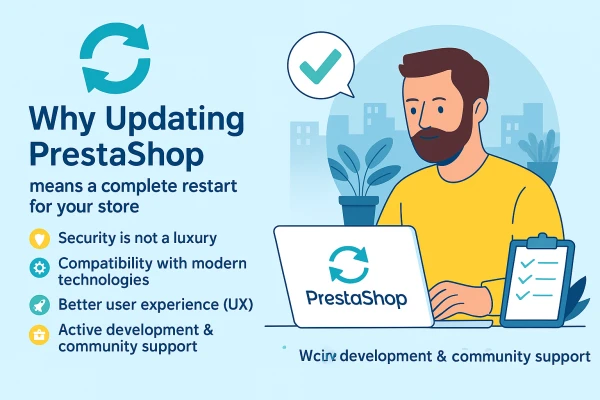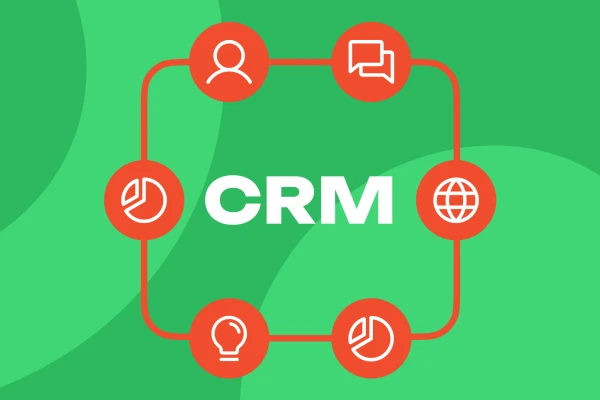BPM - Business Process Management
BPM allows modeling, automating, and optimizing business processes to increase productivity and control over operations.

Advantages of Using BPM
Key advantages of using BPM for businesses
✓ Automation of Business Processes
BPM allows automating many routine operations, helping to speed up task execution and reduce the likelihood of errors.
✓ Efficiency Increase
Through centralized management and automation, BPM helps increase productivity and optimize internal company processes.
✓ Increased Transparency
BPM provides a clear picture of company processes and resources, allowing management and employees to better understand their functioning and interrelationships.
✓ Agility and Adaptability
BPM helps companies quickly respond to changes in the internal environment or market by adapting business processes to achieve strategic goals.
✓ Continuous Improvement
BPM fosters a culture of continuous improvement, enabling companies to constantly analyze, evaluate, and improve their processes to achieve greater efficiency and competitiveness.
BPM Potential for Hidden Profitability
Range of Possibilities
Learn how our BPM system can enhance your business
Contact Management
Automation of Sales Processes
Customer Segmentation and Personalized Approach
Monitoring and Analysis of Marketing Activities
Increased Team Productivity
Accurate Tracking of Customer Base and Interaction History
Time Saving through Automation of Routine Tasks
Improved Sales Strategies through Data Analysis and Forecasting
Convenient Access to Customer and Task Information
Increased Customer Satisfaction through Personalized Service and Effective Issue Resolution
Individual Approach to Customer Profitability Evaluation
bpm.task_and_project_management
bpm.tracking_of_interaction_history_with_customers
bpm.coordination_of_multifaceted_customer_relationships
bpm.centralized_sales_management
bpm.input_and_tracking_of_information_about_existing_and_potential_customers
bpm.task_execution_control_and_receiving_reports_on_customer_interaction_effectiveness
bpm.quick_access_to_any_customer_documents
bpm.automation_of_call_center_and_marketing_department_work
bpm.maintenance_of_company_contact_history_with_customers
bpm.customer_and_market_segmentation
bpm.integration_with_social_networks_for_customer_interaction
bpm.support_for_mobile_devices_for_remote_work
bpm.integration_with_email_and_calendars_for_effective_planning
bpm.task_and_project_management
bpm.support_for_customization_and_functionality_extension_according_to_business_specific_needs
Integration
Description of ERP integrations with other systems
Collaboration with intelligent systems such as image recognition systems, machine learning, and others.
Management of your company's financial activities, including income, expenses, profits, and losses.
Integrated enterprise management systems that combine financial accounting, order management, inventory accounting, HR, and other functions.
Exchange of emails for communication with customers, partners, and colleagues.
Using messengers such as WhatsApp, Viber, Telegram, etc., for communication with customers and colleagues.
Integration with telephony systems for call processing and call logging with customers.
Using tools for conducting video conferences with customers, partners, and colleagues.
Organizing work and personal time using Google calendar events.
Using tools for planning, executing, and controlling projects.
Integration with various payment systems such as PayPal, Stripe, 2Checkout, etc.
Collecting and analyzing customer feedback to improve product and service quality.
Using tools for analyzing and visualizing data to make strategic decisions.
Connecting to other CRM systems for data exchange and collaboration with other companies.
Integration with APIs of other third-party services such as Google Maps, OpenWeatherMap, YouTube, etc.
These are just a few examples. Your system can integrate with many other services depending on your business needs.
Service Prices
Cooperation under B2B contract terms. Payment based on the invoice for the completed work.
| Service | Price |
|---|---|
| Consultation | Free |
| Project estimation | Free |
| Writing a technical task | 17 euros/hour |
| Full project development | 19 euros/hour |
| Refinement of another project | 22 euros/hour |
| Correction of others' mistakes | 22 euros/hour |
| Writing customer documentation | 17 euros/hour |
We carry out tasks of any complexity
Interaction with clients is conducted in writing via messengers or email
Questions and Answers
Frequently Asked Questions from Our Partners
The implementation of BPM enables the optimization of business processes, reduces task execution times, increases efficiency, and control over processes.
The main components of BPMN include events, tasks, gateways, markers, and paths used for modeling business processes.
Steps include analyzing current processes, determining steps to be automated, selecting a BPM system, developing and implementing a solution, training staff, and continuous improvement.
Risks include incorrect definition of processes, inadequate staff training, integration issues with other systems. They can be mitigated through detailed planning, staff training, and testing.
Methods include using APIs, standards for data exchange (e.g., XML or JSON), and integration through various tools such as ESB.
Metrics may include process cycle time, error rates, customer satisfaction, and other key indicators reflecting process efficiency.
Strategies may include communication with staff, training, fostering a positive attitude towards change, and involving staff in the implementation process.
Obstacles may include resistance from staff, inadequate training support, difficulties with the new user interface. They can be overcome through effective training and support.
Benefits include shortened transaction processing times, reduced errors, increased accuracy, and cost savings.
Tools may include BPMN modeling tools, project management systems, data and process analysis tools.
Security can be ensured through data encryption, access control, monitoring of user activities, and the use of security technologies.
Strategies may include phased implementation, expanding functionality, and integration with other systems used in the company.
News
Welcome to explore our interesting and useful publications that will tell you about the latest events and interesting facts!
Effective management is a key factor in the success of modern businesses.
BPM (Business Process Management) is a management strategy aimed at optimizing business processes to increase efficiency and achieve organizational strategic goals. This includes analysis, modeling, automation, implementation, and continuous improvement of processes within the company.
Business process management helps companies optimize workflow, ensure their efficiency, and improve collaboration between departments and teams. This enables companies to respond more quickly to market changes, improve the quality of their products and services, and achieve strategic goals.




Interaction with popular social networks such as Facebook, Twitter, LinkedIn, etc., for marketing purposes and audience engagement.